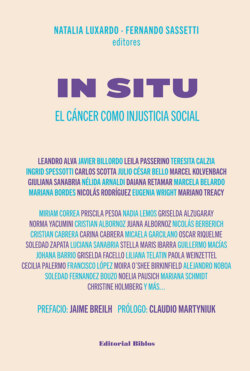Читать книгу In situ. El cáncer como injusticia social - Natalia Luxardo - Страница 41
На сайте Литреса книга снята с продажи.
Further reflections
ОглавлениеOne may argue in a rather positivist fashion that Virchow’s ideas are still active in the fields of evidence-based medicine, shared decision-making, and health reporting. Differentiating statistics by socioeconomic status, and improving the health literacy and numeracy of populations, are fundamental to German health policies. The activation of socioeconomically disadvantaged groups to become politically engaged is recognized as an important goal of research activities. None of this, however, works under the label of social medicine. Social medicine is in fact receding behind epidemiology, health economics, and health services research.
The importance of the social and political causes of bodily manifested disease is today well-established. Social epidemiologists such as Nancy Krieger and medical anthropologists such as Margaret Lock have long connected context to local biologies, embodiment and manifest diseases (Krieger, 1994, 2014; Lock, 2006). PhD/MD programs with training in medical anthropology or history have been bringing new ideas to social medicine and medical history (Harvard Medical School; Johns Hopkins School of Medicine; McGill University; Berkeley University of California). A medical anthropologist headed the World Bank for several years. The ideas of social medicine have come a long way since Virchow’s times. They have seen post-colonial and feminist studies, science and technology studies.
Germany has, without a doubt, one of the best social security systems in the world, the foundations were laid at the end of the 19th century. Social medicine has from the start encompassed labour laws. The German scholar Heinz David (2002) suggests that Virchow used the term ‘social’ on three levels: 1. to focus on those who are socially disadvantaged in society; 2. according to his understanding of medicine as a social science of the human; and 3. in consideration of the sociality of humans in society, or the fact that humans live in and with social communities. In this sense, for him “medicine was politics on a small scale” and “politics medicine on a large scale” (David, 2002).
Virchow was, however, a scholar of his time. We should allow social medicine to reach the 21st century and go beyond health statistics and the objective measurement of populations. Medical anthropology has given rich testimony to the many entangled ways in which power relations and knowledge production work to create (health) inequities. To improve the health of all and to tackle the social and political origins of disease, we would do well to consider medical anthropology as a basic science of medicine through which we can learn about disease, as it is produced and enacted within social and political communities.
Perhaps this is the most important legacy of Rudolf Virchow. Let us not be constrained by a cosmology that may hinder a thorough investigation into the causes of suffering in society and medicine.
